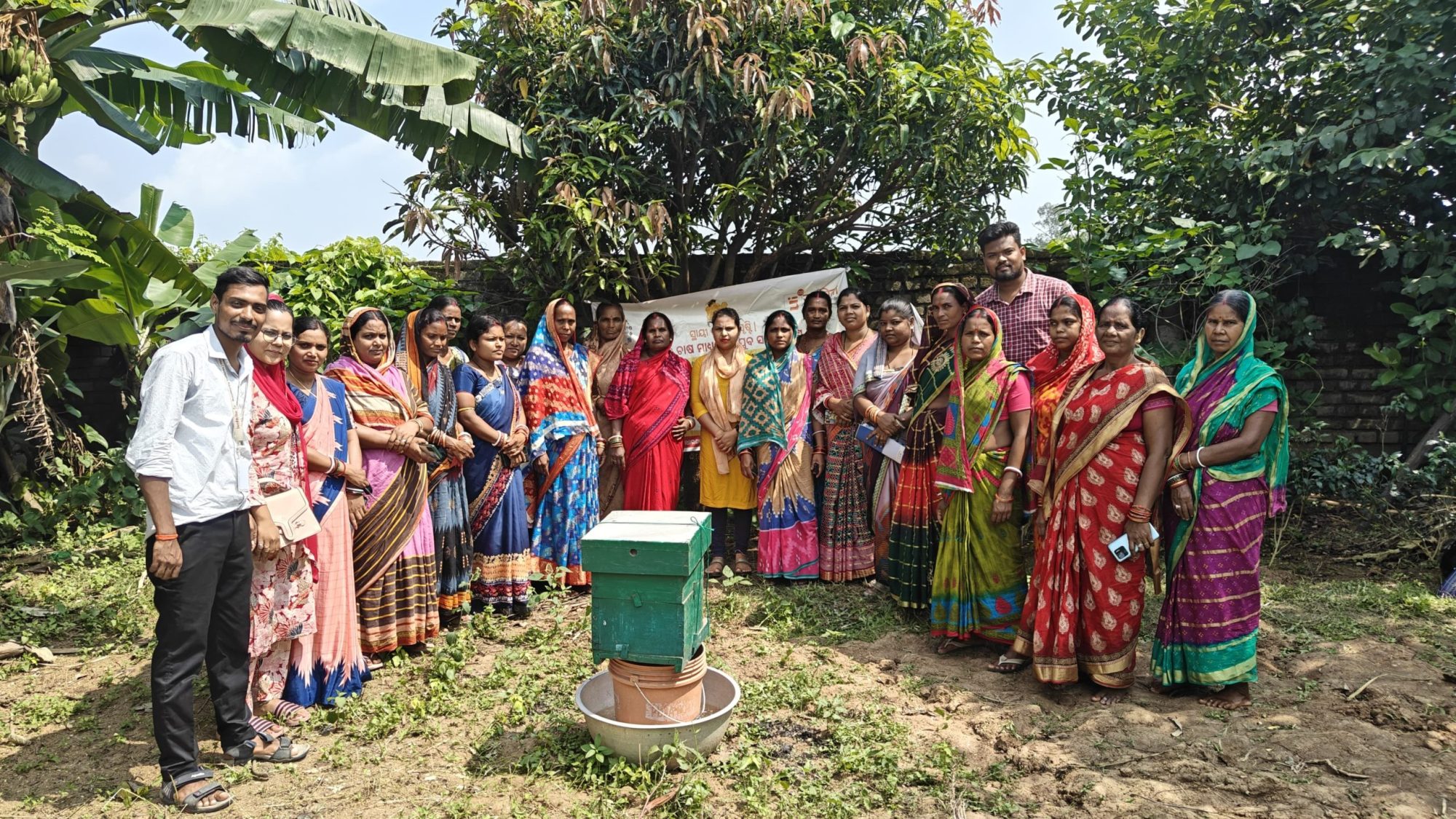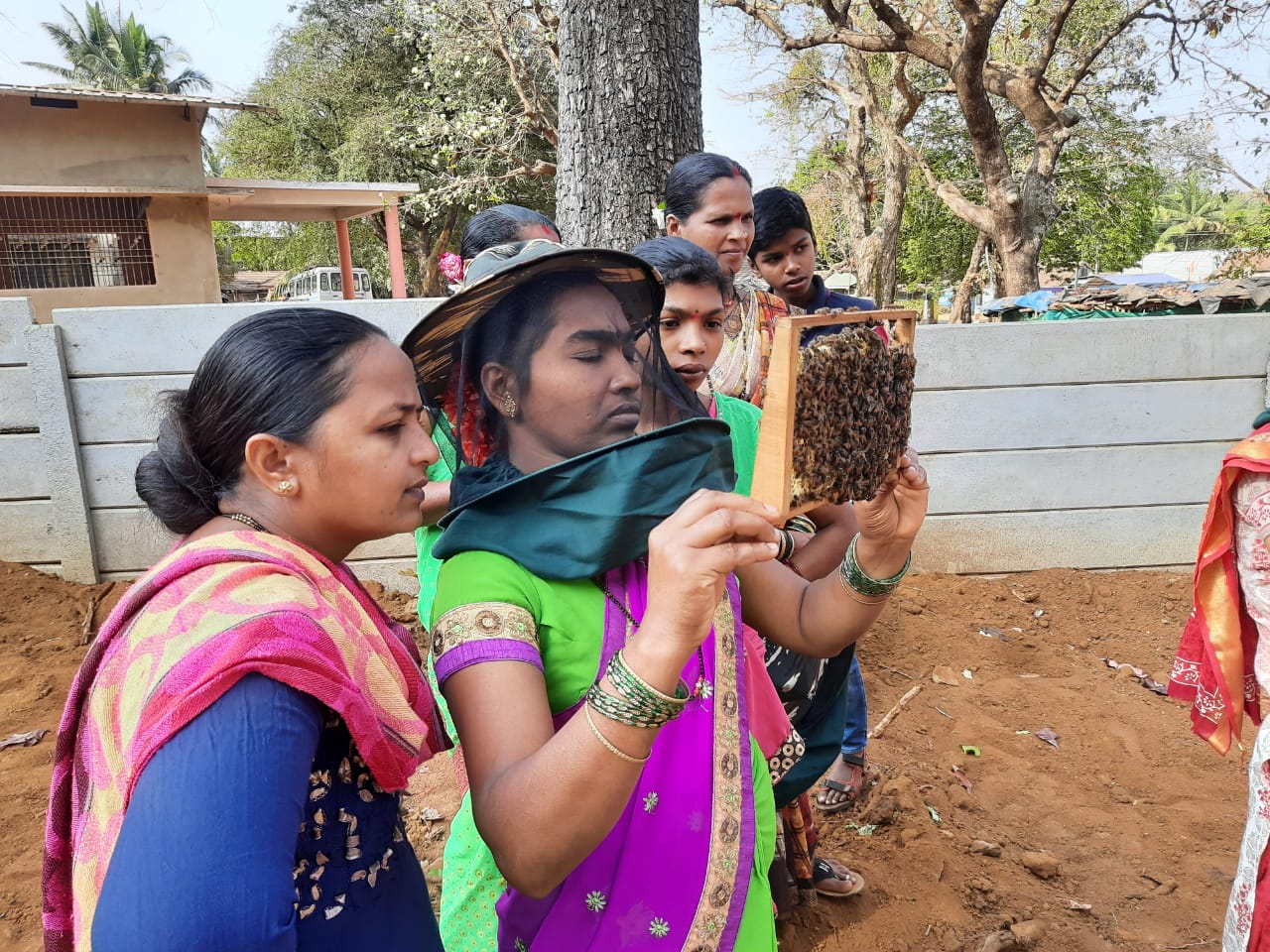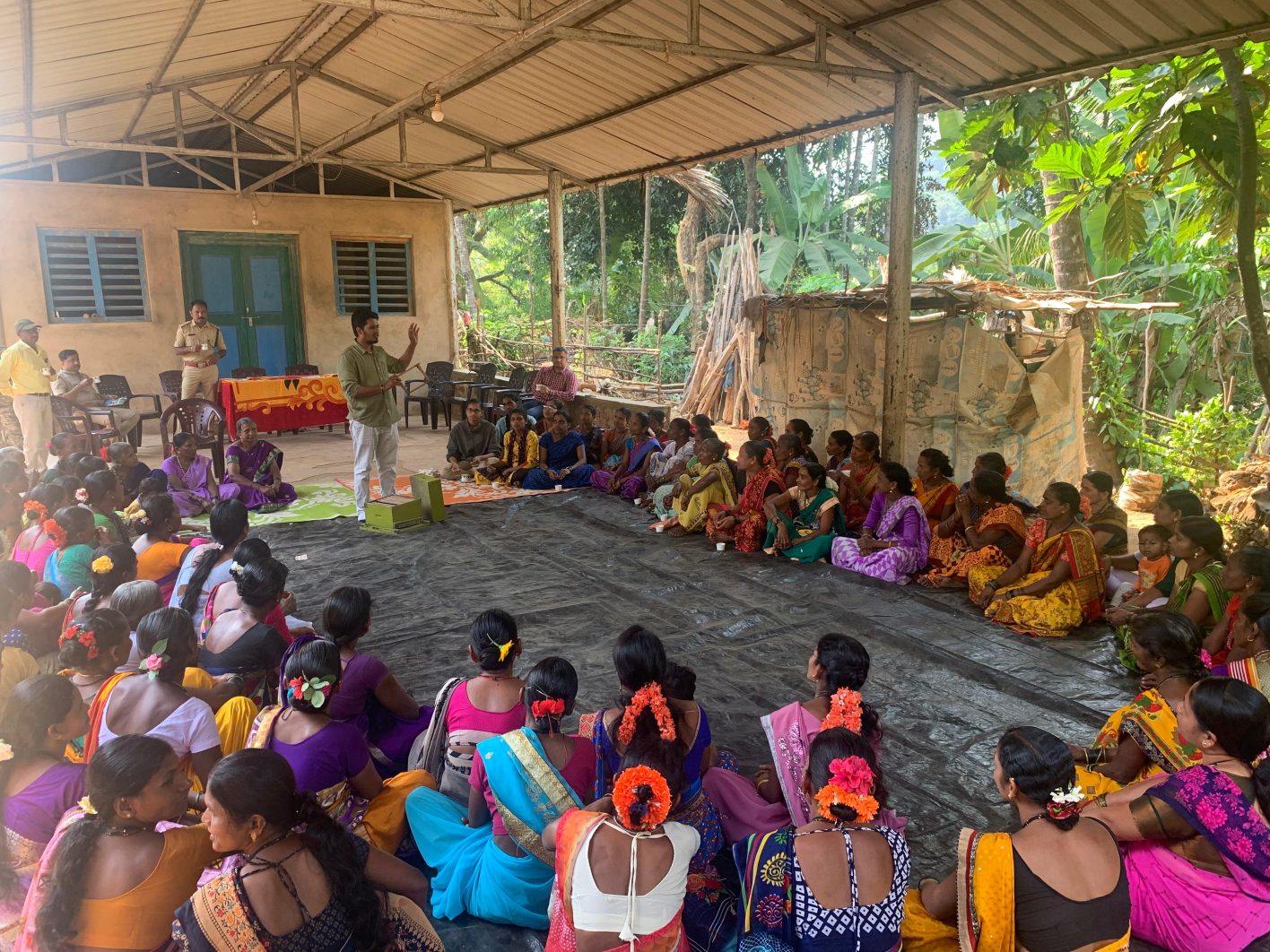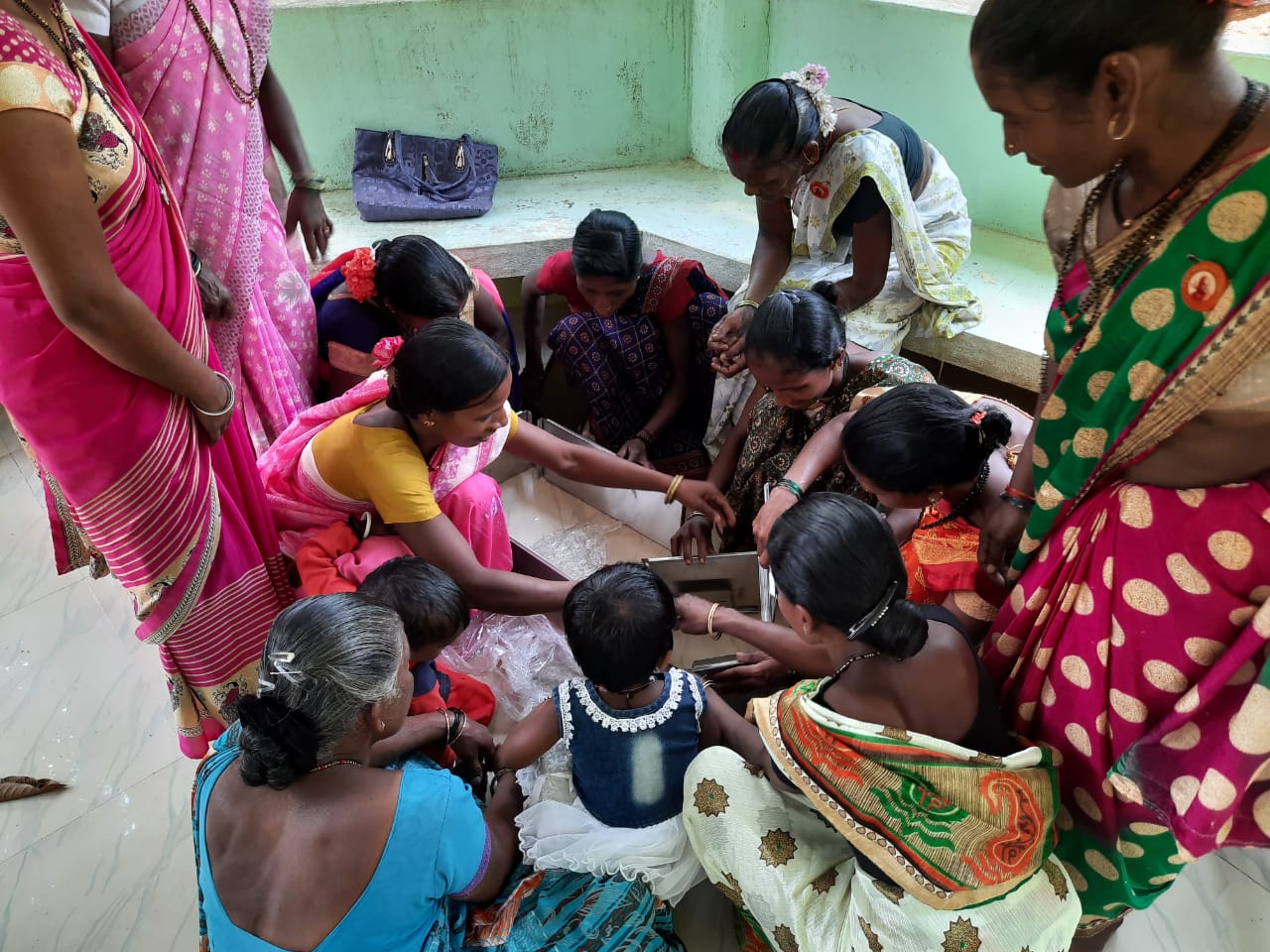
Bee the Change: How Sustainable Beekeeping Contributes To Climate Action
This blog explores sustainable beekeeping as a way to transform honey production into a powerful tool for climate resilience, food security, and ecosystem restoration. India’s Humble Bee Movement empowers rural communities, especially women, to adopt sustainable practices. Boosting biodiversity, enhancing pollination, and supporting regenerative agriculture.
Written by Monika Shukla, CEO & Co-Founder of Humble Bee
To make a prairie it takes a clover and one bee. — Emily Dickinson.
This simple truth captures the intricate dance between bees, ecosystems, food security, and human survival. Bees are indispensable pollinators that bolster agriculture and biodiversity. Yet they now face serious threats from climate change, habitat loss, and unsustainable practices. Protecting our food systems and planet demands that we rethink and elevate the role of beekeeping in ecosystem restoration.
As the CEO and co-founder of Humble Bee, India’s pioneering Apitech social enterprise, I’m dedicated to transforming beekeeping into a powerful driver of sustainable agriculture, community empowerment, and ecological resilience. At Humble Bee, we empower rural and forest communities—especially women—to build livelihoods that support biodiversity and restore ecological balance. This article dives into the journey and potential of sustainable beekeeping, a movement I hope will inspire others to join and “Bee the Change.”

Why Beekeeping? Why Now?
For centuries, honey has held a place of reverence in Indian culture, symbolizing prosperity, health, and vitality. But today, beekeeping offers solutions far beyond honey production. With pollinator populations plummeting worldwide, the need to support beekeeping as a critical ecological practice has never been more pressing. With more than 80% of our crops relying on these pollinators, this decline presents a risk to global food security.
Beekeeping emerges as a sustainable, impactful livelihood for rural and tribal communities in ecologically sensitive regions. Beekeepers, if empowered, have a potential to sustain biodiversity, boost crop yields, and improve soil health. All critical components in addressing climate change. However, a scalable, impactful system requires the right tools, training, and market access, which is where Humble Bee comes in.
The Humble Bee Movement: An Ecosystem-Based Approach
Our goal isn’t just to produce the real and the most authentic honey but to transform Indian agriculture by integrating sustainable and scientific beekeeping into rural livelihoods models. We are employing a “tech-and-touch” model, combining advanced tools with hands-on support, to foster a thriving beekeeping ecosystem. This approach is built on three foundational pillars:
- Climate-Resilient Practices: We focus on climate-adaptive beekeeping that supports crop diversity, enhances soil health, and builds resilience to climate change. By implementing region-specific practices, we empower farmers and beekeepers to build economic and ecological resilience from the ground up.
- Empowering Women Beekeepers: Women in rural India play essential roles in agriculture, yet they often lack income opportunities and face climate-related hardships. Beekeeping offers a flexible livelihood that fits well with their agricultural duties. Through training and resources, we enable women to confidently manage hives, fostering economic independence and community leadership.
- Ecosystem Restoration: Bees are central to pollination, which directly impacts crop yields and biodiversity. By embedding beekeeping into agricultural landscapes, we’re promoting food security, enhancing biodiversity, and supporting ecological stability.

Our Journey So Far
Humble Bee officially took flight in July 2023, following a couple of years of groundwork to develop a model tailored to the unique challenges faced by rural beekeepers. In our first year, we forged partnerships with the Bill & Melinda Gates Foundation, CGIAR, UNICEF-Yuwaah, Tata Trusts-CiNi, WWF-India, Aga Khan Foundation, along with public and private stakeholders, allowing us to reach India’s most climate-vulnerable regions. Our impact spans five states, where we work with communities in diverse terrains—from tiger reserves to agricultural zones. We have witnessed how beekeeping transforms lives, providing a reliable income for families and strengthening ecosystem resilience.
Leveraging Technology: Precision Beehives and AI-Driven Insights
One distinctive aspect of our model is the integration of technology. Through our AI-powered BEEKIND platform, we provide hyperlocal data on climate, crop trends, and pollination. BEEKIND offers actionable insights that help beekeepers make informed decisions about hive management and crop care. By bridging the gap between science and practice, we equip rural communities to tackle environmental challenges. With data on crop-pollination patterns and bee health, we’re building a foundation for resilient, sustainable agriculture. Through mobile access, rural beekeepers receive actionable insights, empowering them to make timely, data-driven decisions for hive management and crop care.”
Beekeeping for Climate Action: A Regenerative Food System
Beekeeping amplifies climate action by supporting regenerative agriculture, increasing crop pollination, and promoting biodiversity. A recent report issued by the Prime Minister’s Economic Advisory Council indicates that India would need over 200 million beehives (From 3.4 million today) to achieve optimal pollination—potentially creating 20 million sustainable livelihoods. Scaling to over 200 million beehives would create a pollination system that not only supports India’s agriculture but could serve as a model for pollinator-focused climate solutions worldwide.
At Humble Bee, we see bees as catalysts for a resilient, low-emission food system. Beekeeping supports crop diversity, reduces synthetic fertilizer dependency, and promotes organic practices that protect soil and water health. Our goal is to make beekeeping a cornerstone of agroecology, enabling farmers to transition to practices that combat climate change.
Partnering for a Just and Inclusive Climate Transition
The obstacles to beekeeping’s widespread adoption are significant, but through partnerships and our unique intervention and capacity building models, we are extending sustainable solutions to the communities that need them most. Together, we’re building a future where beekeeping serves as a beacon of ecological and economic resilience. Our approach places communities at the center of climate action, rooted in the belief that environmental justice requires social equity. Beekeeping allows rural communities to move from vulnerability to agency, equipping them to shape climate-resilient futures.

Gender Equality through Beekeeping: Empowering Women for Change
Through beekeeping, women gain skills that lead to lasting impacts on their lives and communities, fostering gender equality and economic resilience. Beekeeping also provides young women with science-based skills and the opportunity to lead in climate solutions. In our experience, women tend to be better nurturers of bees than men. At Humble Bee, we witness the transformative power of beekeeping every day—from increased crop yields to flourishing biodiversity. Most importantly, we see women stepping up as climate advocates, inspiring others in their communities. By empowering women, we’re building a legacy of resilience and laying the groundwork for sustainable development.
A Golden Revolution: Our Vision for Scientific Beekeeping
Our vision is clear: a community-driven ecosystem where scientific beekeeping underpins sustainable income, biodiversity, and food security. By merging indigenous knowledge with cutting-edge practices, we’re creating a model that respects local traditions while fostering innovation. Inspired by India’s White Revolution in dairy, we envision a Golden Revolution in beekeeping. By 2028, we aim to empower one million beekeepers across India, having already mobilized 10,000 women who are leading the charge. Through every hive established and every crop pollinated, we’re advancing a climate-resilient future that prioritizes biodiversity, food security, and ecological health.
To realize this vision, we’re collaborating with policymakers and organizations like the National Bee Board and the National Rural Livelihood Mission. With increased support from government and development partners, we aim to embed sustainable beekeeping into India’s agricultural strategy as a vital tool in the fight against climate change.
Bee the Change: A Call to Action
The Humble Bee Movement redefines beekeeping as more than a source of honey. It’s a call to recognize beekeeping as a driver of sustainable agriculture, ecosystem restoration, and climate resilience. Empowering rural women to become skilled beekeepers not only supports individual livelihoods but also lays the foundation for a sustainable, climate-resilient future.
With each apiary established, every beekeeper empowered, and every crop pollinated, we’re crafting a legacy that supports biodiversity, food security, and ecological well-being. We invite you to join us in the Humble Bee Movement and #BeeTheChange for a brighter, more resilient future. Together, let’s ignite a “Golden Revolution” and show that even the smallest creatures can create monumental change.
Monica Shukla is the CEO and co-founder of Buzzworthy Ventures and is currently part of the 2024 cohort of the Women Climate Collective, a platform which supports emerging women leaders to lead climate action, towards a just, gender-inclusive climate transition.


